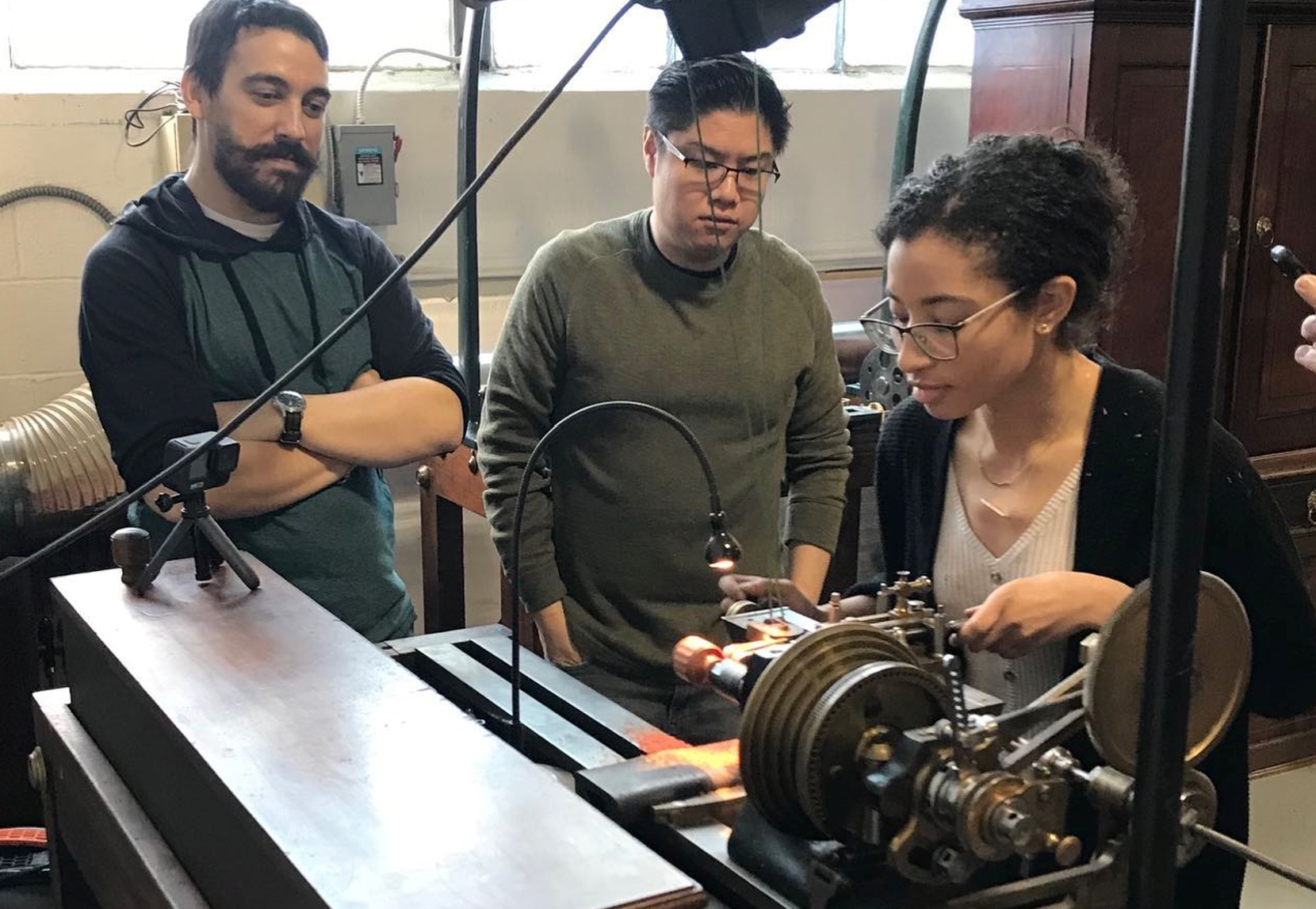About Plumier
The passion would pervade the sovereigns from all corners of Europe, yet it would be over 150 years before the first practical treatise on the rose engine and turning would emerge.
The son of a wood turner, Charles Plumier, himself a priest, botanist and turner, wrote his book, The Art of the Turner, in both Latin and French to optimize the number of people who could read it. Published in 1701 by Louis XIV, Plumier’s book would stand as the sole comprehensive treatise on the subject for over 80 years. The importance of the book cannot be overstated. Recognizing this, Peter the Great had it translated into Dutch and Russian.
Charle’s Plumier’s passion was to educate, and The Plumier Foundation shares that passion and has taken up the charge in the 21st century.

David Lindow started his career in horology in 1990 apprenticing under Gerhard Hartwigs, owner of Hartwigs Clock Company. Gerhard was the last apprentice at J.E. Caldwell, Jewelers in downtown Philadephia in the early 1960’s. David’s apprenticeship lasted 5 years after which he worked at Kyden Machine in Salt Lake City, UT learning better machining techniques and gaining a deeper knowledge of machinery. After this “journey” to UT David returned to Pennsylvania under Hartwigs’ employ and began applying his newly learned techniques to the production of period style tall clocks and Patent Timepieces. In 1997 Gerhard Hartwigs passed on, and David officially took ownership of the business in 1998 and expanded the production of clocks and horological tooling. In 2006 David developed and began producing rose engines which made available a newly manufactured engine turning machine for the first time in over 60 years. Since then over 125 of these machines have been produced and are represented all over the world. He was also instrumental in the production of the MADE Lathe an exquisite Victorian style machine of the highest grade.
In his career David has produced over 1500 clock movements and restored countless period antique clocks, and has become known for his ability to handle difficult jobs where many components are missing and restore these clocks sympathetically. His restoration work can be seen in the Philadelphia Museum of Art. He has also worked for the Detroit Museum of Art and has kept the clocks at the University of Pennsylvania. His period reproduction work can be seen at Monticello, Colonial Williamsburg, Clinton Library in Arkansas, Bush Library in Texas, and the Indiana State Museum just to name a few. David has also been a frequent lecturer and teacher for both horology and engine turning throughout the United States and has won awards for building both clock movements and horological tools.
In 2017 David met Bill Ruprecht and in time agreed to help Bill set up and manage The Plumier Foundation, which was the culmination of a long time dream.
Bill worked as an apprentice to a Cabinetmaker in Vermont in the second half of the 1970’s. Near Hanover New Hampshire, Bill participated in workshops with craftsmen at Dartmouth College, including Sam Maloof, and was inspired by the work of James Krenov. At the time Fine Woodworking Magazine was dedicated to careful and sophisticated work, and among other skills introduced to Bill at that time was Ornamental Turning on which Fine Woodworking published two articles. Bill Moved to New York City in 1980 and began a career in the Art Auction business, eventually leading Sotheby’s as Chairman and CEO from 2000 till 2015 when he retired from that business.
Bill First acquired his first ornamental turning lathe in the early 1990’s from Steve Johnson in Seattle, while on a trip to see Microsoft. That lathe was packed sent to an art storage facility where it sat, unassembled, for almost thirty years while Bill travelled the world in the business of selling works of Art. Most frequently Bill visited London, in some years as often as every week for a couple of days. During that time in the U.K., , Bill encountered John Edwards who had assembled voluminous information about ornamental turning lathes and equipment and often guides interested parties in buying equipment. In fits and starts, Bill acquired equipment and began a more serious study of the wonder of these tools. Bill met David Lindow in 2017, and was impressed by his passion, and asked for his help as he began to seriously shape the foundations of the Plumier Foundation, which was created in 2018.